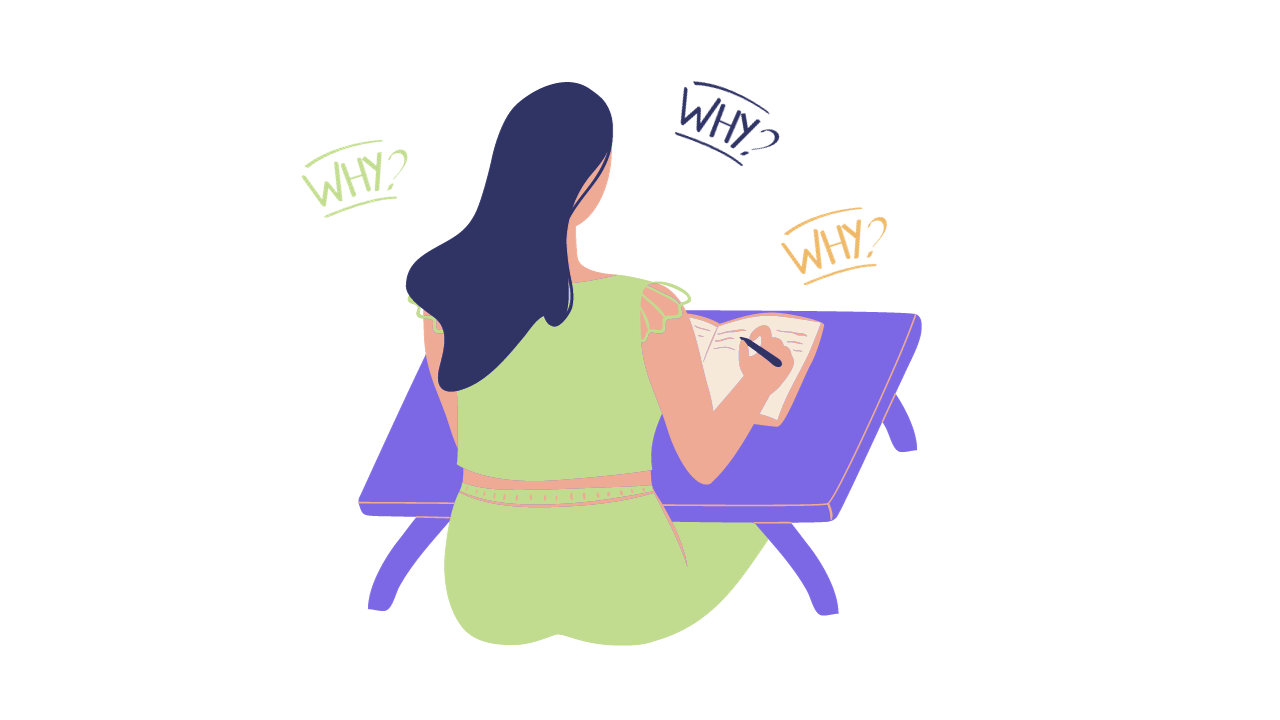Why writers need to know their why – and how to find yours
As a book coach, one of the first questions I ask writers when we start working together is: "Why are you writing this story?" Note that I ask about THIS story. I'm not asking why they want to write a novel in general, but rather why they feel compelled to spend months and potentially years of their life working on this particular story.
Many writers have never stopped to think about this question. And although some people work out their why as they write, others end up spending years working on something that just skates along the surface and never goes deep enough to be meaningful or to have an impact on the reader.
So the earlier you think about why you're writing your book, the better – even if your understanding of your why changes and grows over time (which it may well, and that's totally fine.)
Why people might write queer kidlit
'Finding your why' is a powerful concept, but the phrase itself can sound a bit fluffy and vague if you don't know what a 'why' might concretely look like. So before we go any further, here are some short examples of some writerly whys for writers of queer kidlit:
"I want to write a joyous, hope-filled book for queer kids who are scared about coming out."
"With this book, I want to explore my own experiences as a trans teenager and inspire others."
"I want to show bisexual teenagers that they belong in the queer community and deserve to be celebrated."
As you can see, there are countless reasons to write a book – and there's no right or wrong here. It's about exploring your own feelings and motivation and understanding what's behind your personal desire to write this story.
Finding your why as a writer: A case study
To make all of this more tangible and to highlight the impact it can have to work out your why, I'd like to talk about one of my clients. To protect her privacy, we'll call her Helen.
When I started working with Helen, she had already written two novels. She had tried to find an agent for her first novel to no avail and so, determined not to give up on her dream, she went back to the drawing board and decided to write something new.
In terms of theme and subject matter, the second novel had some overlap with the first. Even the protagonist was the same. There was clearly something here that she couldn't let go of. Over many years, Helen had attended writing workshops and courses, read countless craft books and genuinely honed her skills.
Yet something was still missing.
When we started working together, one of the first things I did was to ask her why she was writing the book, and as is the case with so many writers, she didn't know and had never stopped to think about it.
So I kept prodding and poking and asking more questions to get her to think more deeply about why she cared about this story and topic so much (the kinds of questions I asked her are listed below). Bit by bit, we chipped away at her emotions, motivation and beliefs surrounding the project until one day, it suddenly clicked.
She realised that both of her stories had been an unconscious attempt to explore and work through something that happened in her childhood – but she'd had absolutely NO idea that that was the case. As I watched her work this out, I swear I saw an actual lightbulb flick on in her head. It was a magical and emotional moment. (Yes, we both cried!)
Here's what she had to say about the experience herself:
Before I'd worked out why I was writing this story, I had this tantalising feeling of knowing I wanted to write – and knowing I wanted to write something meaningful – but not knowing quite what it was. My story felt elusive, somehow. Like it was just out of reach.
The moment I worked out why I was writing was quite shattering in a way, but in a good way. Suddenly things made sense. I spent a lot of time writing about it all in the days that followed and was stunned to see what came up for me as I explored my newly discovered why. Memories that had been buried came back as I started to write about what had happened back then.
And now it's an absolute joy to work on my novel. I feel such a sense of pleasure at being able to finally nail it and get it all out there. It's like a release, I suppose. A release and a relief.
The difference here between before and after is palpable, isn't it? And I have to say, Helen is on a roll now. After this revelation, she went back to the drawing board once again and worked more on her character and plot in the light of her new-found why. Now she knows where she's going with her novel. She knows why she cares. And she knows why readers should care too.
And what's more, this revelation helped her on a personal level too, not just with her writing. All of that from asking such a simple little question!
Reasons why writers should think about their why
In case you're still not convinced that this is something worth thinking about, here are three key benefits of knowing your why.
Knowing your why adds a deeper layer of meaning
Knowing why you're working on your book will add a much deeper layer of meaning to your story – something your readers will sense too. It will encourage you to look inwards, dig deep and as a result, craft a story that is real, raw, engaging and impactful.
Knowing your why helps to keep you motivated
If you're clear on why you're working on this project and what it means to you, you're much more likely to remain motivated and see it through to the end. It's hard to keep working on something as complex as writing a book if you don't know why you're doing it!
Knowing your why makes writing more enjoyable
As you saw in the case study above, understanding why you’re writing your novel can make the whole process more enjoyable, as you’ll know why you’re doing it and what impact you want your book to have. As a result, you’ll clarify your vision for your book and find it easier to get the story out of your head and onto the page.
How to work out your why as a writer
Your why is always something personal to you, but maybe you're struggling to work out what it is. If so, here are some questions to ask yourself to help you work it out:
Why do I care about this story?
What is it about this storyline, character or world that won't let me go?
What core belief is driving my passion to tell this story?
Who needs to read this story, and why?
What is it about this story idea or character that speaks to me on a heart-and-soul level?
What do I bring to this story that someone else couldn't?
How would I feel if I didn't write this story, and why?
You can either work through all of these questions or just pick one or two that resonate with you, but either way, I would recommend writing your answers and thoughts down. This is unlikely to be a one-time activity, but rather an exploratory process that takes time – and possibly numerous sheets of paper!
As I hope you can see, your why is central to the emotional act of writing a novel. Understanding what it is can make a huge difference to how you approach writing your story, how much you enjoy writing it and how impactful your finished novel is.
So good luck working out your why and if you need some help along the way, just let me know!

